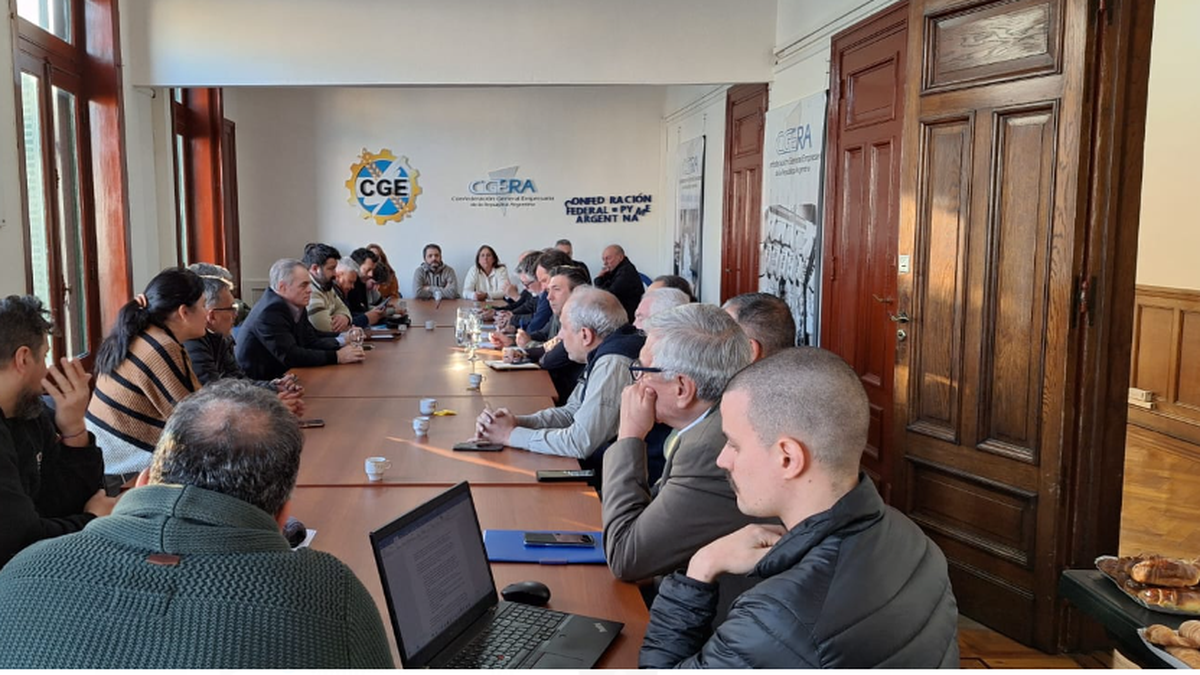The Secretary of Industry, Marcos Ayerra continues to gather opinions and suggestions from entities that represent small and medium-sized businesses with the aim of creating a new law that promotes the activity of that sector of the economy that accounts for almost 90% of employment in Argentina.
Yesterday he was with the chambers that make up the General Business Confederation of the Argentine Republic (CGERA). At a meeting held at the entity’s headquarters on Rivadavia Avenue, the official presented the series of measures that the government has been taking in favor of SMEs since the current administration of Javier Milei began.
There was a kind of a settling of scores between the two sectors, albeit within a cordial atmosphere. While the businessmen made their claims, Ayerra explained to them that a large part of them were covered in programs that are already in effect. that they were not aware of.
“There are measures for exports that we were unaware of. Also for companies that integrate value chains for export, which can access tax discounts,” Marcelo Fernandez, head of the CGERA, explained to Ámbito.
The reality is that for the moment, Ayerra has not anticipated what tax benefits could be included in the SME bill.warns that these should have low or no impact on the treasury.
“We are in the process of preparing the next law,” said Fernandez, who insisted on the need for the entity he represents to be taken into account when the project begins to take shape.
The current law for small and medium-sized companies provides benefits such as accelerated amortization of capital assets to be deducted from the Income Tax and the possibility of using the Check Tax. to cancel other taxes. In principle, the idea is that the benefits of this type will be maintained.
The head of CGERA raised the need to allow SMEs to use the amounts of employer contributions for the payment of VAT, among other issues.
Representatives of companies attended the meeting Textiles, Leather Goods, Opticians, Graphics, Laboratories, Glass, Auto Parts, Plastics, Leather, Bakers, Food, Construction and Commerce.
They agreed to express their concern to the official about the decline in activity, consumption and production. They therefore asked to have an interlocutor with the National Government to provide ideas and possible solutions.
“Ayerra listened to all the attendees and proposed to continue with this table and Those who are added to find the ways and adapt the measures of the different areas of the Government and that are not known by the entrepreneurs,” it was officially reported. The entity requested to actively participate in the future SME law and to disseminate the tools that were created and those that are going to be designed so that they are known by those who can use them.
Entrepreneurs found a “firm willingness to start having a channel of dialogue on the situation of the productive sectors and to be able to contribute ideas and projects to urgently correct the situation they are currently experiencing.”
The SME Law project arose from whats questions from the opposition regarding the Large Investment Incentive Regime (RIGI). They consider that many tax benefits were given to large companies, while small companies were not considered. These are questions from the opposition regarding the Large Investment Incentive Regime (RIGI).
There is agreement among different business entities that a new law should redefine the parameters that determine when a company is really an SME.Currently, annual billing and the number of employees, energy consumed, among others, are used.For the UIA, a way must be found to update these parameters so that they do not become outdated with inflation.
SMEs, for their part, are seeking to limit the universe of companies that can benefit from the benefits. They question the higher levels of the law, which allow companies that they believe could be included in the group of large companies to access discounts.
Source: Ambito




